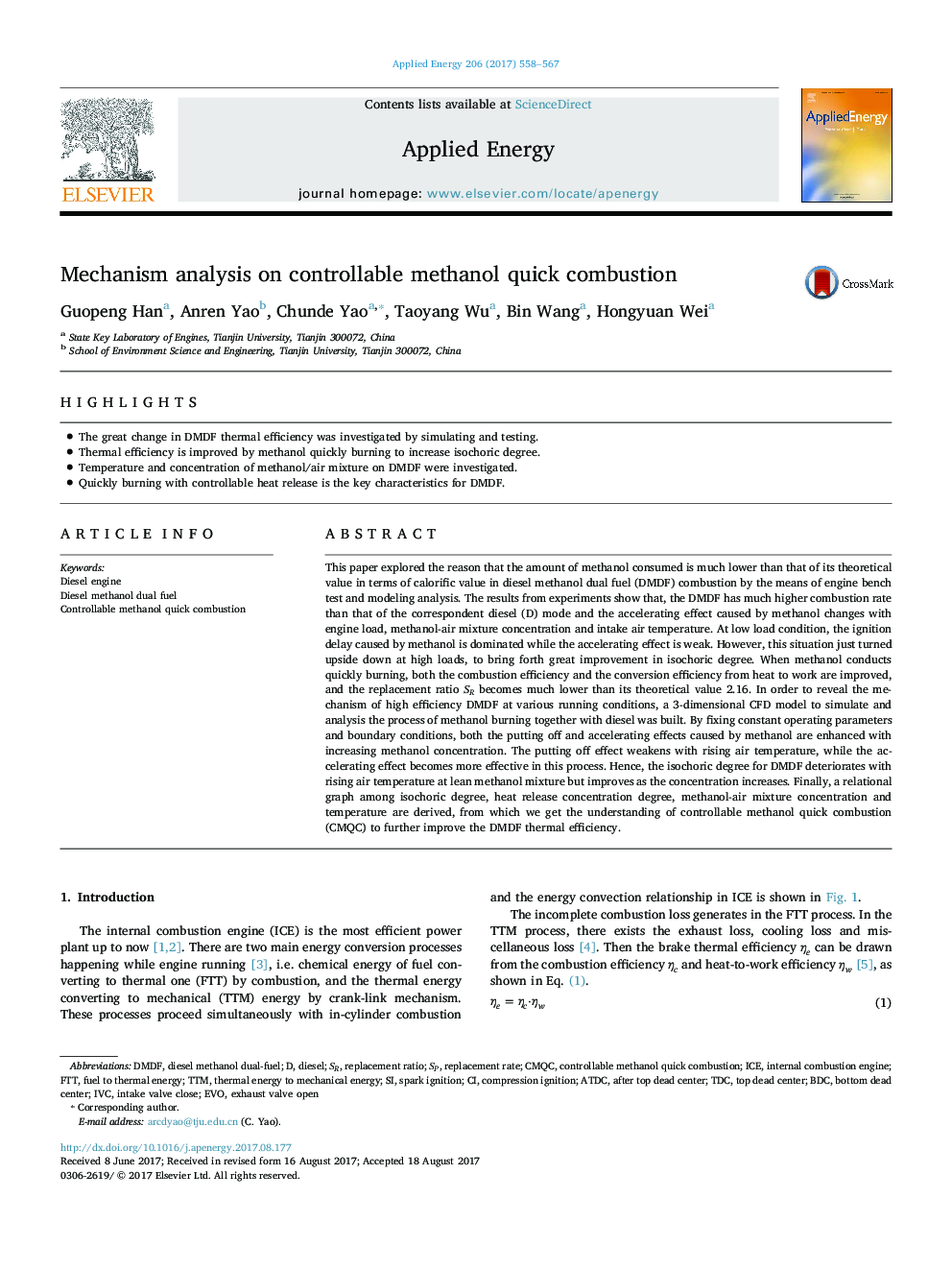| Article ID | Journal | Published Year | Pages | File Type |
|---|---|---|---|---|
| 4915701 | Applied Energy | 2017 | 10 Pages |
Abstract
This paper explored the reason that the amount of methanol consumed is much lower than that of its theoretical value in terms of calorific value in diesel methanol dual fuel (DMDF) combustion by the means of engine bench test and modeling analysis. The results from experiments show that, the DMDF has much higher combustion rate than that of the correspondent diesel (D) mode and the accelerating effect caused by methanol changes with engine load, methanol-air mixture concentration and intake air temperature. At low load condition, the ignition delay caused by methanol is dominated while the accelerating effect is weak. However, this situation just turned upside down at high loads, to bring forth great improvement in isochoric degree. When methanol conducts quickly burning, both the combustion efficiency and the conversion efficiency from heat to work are improved, and the replacement ratio SR becomes much lower than its theoretical value 2.16. In order to reveal the mechanism of high efficiency DMDF at various running conditions, a 3-dimensional CFD model to simulate and analysis the process of methanol burning together with diesel was built. By fixing constant operating parameters and boundary conditions, both the putting off and accelerating effects caused by methanol are enhanced with increasing methanol concentration. The putting off effect weakens with rising air temperature, while the accelerating effect becomes more effective in this process. Hence, the isochoric degree for DMDF deteriorates with rising air temperature at lean methanol mixture but improves as the concentration increases. Finally, a relational graph among isochoric degree, heat release concentration degree, methanol-air mixture concentration and temperature are derived, from which we get the understanding of controllable methanol quick combustion (CMQC) to further improve the DMDF thermal efficiency.
Keywords
Related Topics
Physical Sciences and Engineering
Energy
Energy Engineering and Power Technology
Authors
Guopeng Han, Anren Yao, Chunde Yao, Taoyang Wu, Bin Wang, Hongyuan Wei,
